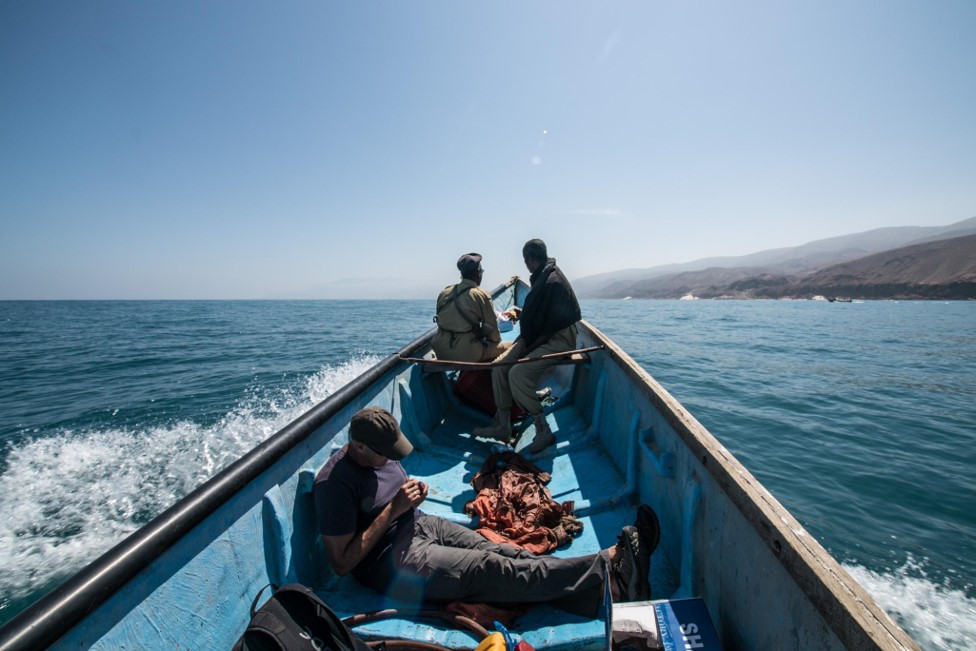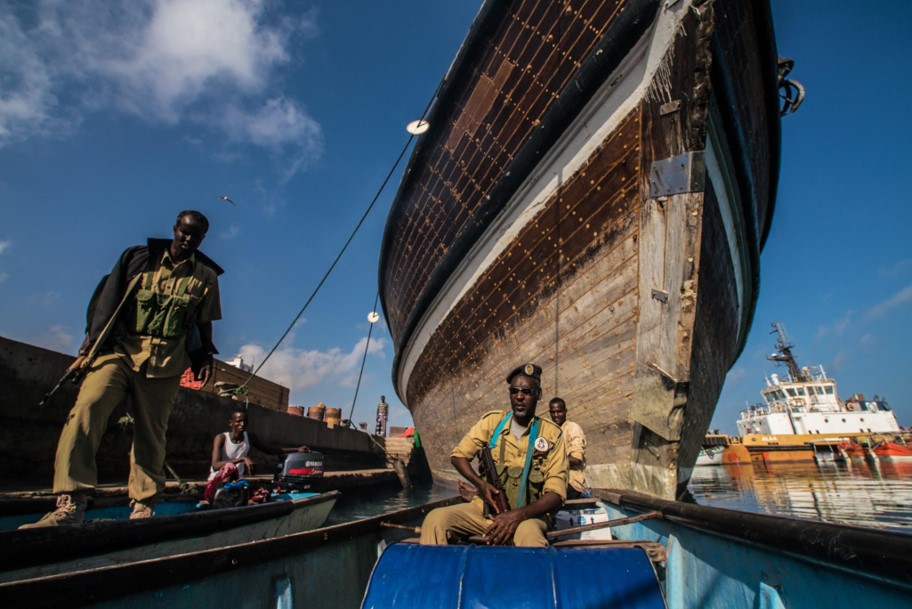- Home |
- Search Results |
- Ian Urbina: How I escaped Somali Pirates on the high seas
Ian Urbina: How I escaped Somali Pirates on the high seas
The world’s oceans are one of the planet's last remaining frontiers: too big to police, the treacherous waters play host to the unbridled extremes of human behaviour. After five years reporting at sea witnessing crime and exploitation, journalist Ian Urbina recalls the time he had a heart-stopping near-miss with militant Islamic groups.

When the engine stalled for the third time, we were clearly in trouble. The fishing boat I shared with several AK-47-toting guards was about a mile off Somalia’s coast. We were near an area where the militant Islamic group al-Shabaab routinely attacked villages. A few weeks earlier, two persons had been shot there and several others kidnapped. The Islamic State, or ISIS, was also active in the region. Retreating to shore was not an option, particularly because we did not look so friendly ourselves.
With me, I had a team of fifteen men, seven of them hired armed guards, part of a security squad that cost me $3,000 for two weeks of protection. The three thirty-foot-long wooden fishing boats with outboard motors traveling in a convoy strained under the weight of so many men. Dusk was approaching, and the engine was sputtering.
We were on our way to meet up with a military-grade, private police ship run by a company called the Somali Security Service. More commonly known as SSS, the company patrolled Somali waters on behalf of the local government of a semiautonomous region called Puntland, looking for foreign ships that were fishing illegally in its waters. After years of grim publicity over Somali piracy, Puntland’s aggressive moves against illegal fishing seemed like a good news story; the government had even set up its own maritime police fleet, called the Puntland Maritime Police Force (PMPF), to enforce fishing laws alongside the private SSS. Puntland officials had offered me a chance to join an SSS patrol if I could find someone willing to take me out to its ship. At the time, the SSS ship was anchored a couple miles from the village of Habo, located at the very tip of the Horn of Africa, directly south of Yemen. We had to travel there by sea because over land was too dangerous.
'Half a mile from shore, we were easy-to-spot targets.'
The day did not start well. When we embarked, two of us made the mistake of stepping to the same side of the boat. Each boat was equipped with a large steel drum full of petrol, and when the boat shifted under our weight, the fuel sloshed, nearly capsizing us. After an hour’s journey along the shore, one of the guards ordered me to sit on the floor to avoid being seen by anyone who might consider me a profitable kidnapping opportunity. Roughly half a mile from shore, we were easy-to-spot targets. We were traveling parallel to a beach that backed up to flat, orange-tinted scrubland stretching inland as far as the eye could see.
Every fifteen minutes, our boat pilot, Mohamud, took a hose and stuck one end in his mouth and the other into the fuel drum to siphon more gas into the boat’s tank. Inevitably, he spilled some in the boat, which mixed with water puddling near me and soaked my clothes and backpack. Before long, I reeked of gas and felt high from the fumes. At one point, Fabio Nascimento, who was also lying on his back in the puddled gas, closed his eyes to avoid the glare. A couple minutes later, he opened his eyes again to discover that one of the guards sitting on the side was now the side of the boat had moved nearby and the muzzle of his loaded AK was now inadvertently two inches from Nascimento’s head.
The Somali sun overhead cooked us with a mean, dry heat — the headache-inducing type that makes thoughts evaporate and tempers shorten. As I lay in the boat, I could see Mohamud chain-smoking in the stern, and I kept my distance for obvious reasons having to do with the flammability of my clothes. About three hours in, I offered him a piece of gum, partly to break the ice, partly to get him to stop smoking long enough so I could get near and we could chat. Lanky and sternfaced, he declined my gum but stubbed out his half-smoked cigarette and saved it for later. Reaching into a plastic bag, he pulled out a handful of khat, a plant commonly chewed in Somalia with amphetamine-like effects. The owner of two fishing boats, he had plenty of complaints about corruption within the Puntland government. He also dismissed the media and government claims to have cracked down on foreign fishing boats. Outsiders were still being given free rein on local waters, he said.

The trip to the SSS ship was supposed to take five hours. The engine failed at about four and a half. “Mr. Ian, we have a problem,” Mohamud said, glancing furtively at the guards. Seeing his facial expression was like sniffing spoiled milk. I didn’t need more information to know it was bad. “I see that,” I replied, nodding toward the engine. “No, bigger,” he said. A text on his phone had informed him of new coordinates of the SSS ship. It would now take another nine hours to reach our destination, he told me. It seemed, for security reasons perhaps, that the SSS ship had moved farther away from us since we had launched.
The expedition was deteriorating rapidly into a dangerous situation. If we stayed the course — assuming we could even get the engine going again — we would be traveling after dark, when pirate and al-Shabaab attacks were more common. The bigger risk, though, was the water. At night, the winds picked up, turning five-foot swells into twenty-foot waves that would easily capsize us. Our boats were low-sided and prone to taking on water. Each had a 25-horsepower motor, barely stronger than an engine in a riding lawn mower. These vessels were not meant for carrying five men, much less the weight of heavy weapons and steel drums full of petrol, traversing coastal waters with night swells.
Not a hard call: I told Mohamud that we needed to turn back. He looked at me, nodded, and continued tinkering with his outboard motor as though he had more important concerns on his mind. One of the armed guards seemed especially nervous, his eyes darting, his fingers fidgeting with his gun. I asked him if he was worried about Al-Shabaab or ISIS. “PMPF,” he replied, much to my surprise. It wasn’t the terrorists that most worried him, he said. It was the police.
This is an edited extract from The Outlaw Ocean by Ian Urbina, available now.